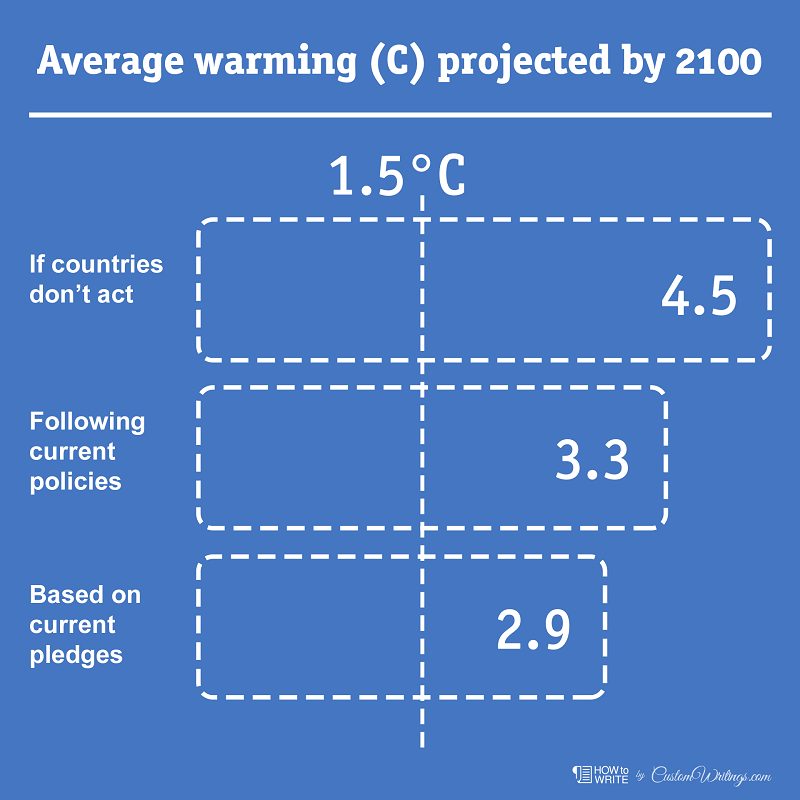Over the past 50 years, human activities such as deforestation, excessive fossil fuel consumption, and industrial emissions have drastically altered the Earth’s climate. The burning of fossil fuels has released massive amounts of carbon dioxide and greenhouse gases into the atmosphere, trapping heat and contributing to global warming.
Scientific data shows that global temperatures have increased by 0.85°C over the past century. If current trends continue, temperatures are expected to exceed safe thresholds by 2030, leading to severe environmental consequences. Given the urgency of this issue, it is crucial to educate the global population on the dangers of climate change. Below are 20 compelling essay topics on global warming that students can explore to shed light on this pressing matter.
20 Short Essay Topics on Global Warming
- The Impact of Climate Change on Human Health
- Understanding the Link Between Global Warming, Climate Change, and Public Health
- Rising Temperatures in Urban Areas: A Consequence of Global Warming
- Natural Disasters and Climate Change: Effects on Communities
- The Role of Global Warming in Increasing Wildfires
- Ocean Acidification and Its Effects on Marine Life
- How Climate Change Affects Global Food Security
- The Connection Between Climate Change and Mental Health Issues
- Global Warming: A Risk Factor for Infectious Diseases
- Investigating the Link Between Rising Temperatures and Allergy-Related Diseases
- Climate Change and Its Impact on Air Quality in Urban Areas
- The Effects of Global Warming on Healthcare Systems
- Strategies to Mitigate the Health Risks of Climate Change
- The Science Behind Global Warming and Its Impact on Human Health
- Climate Change and Droughts in Sub-Saharan Africa
- The Negative Effects of Global Warming on Agriculture and Food Supply
- Irregular Weather Patterns and Their Effect on Wildlife Ecosystems
- The Health Risks Associated with Greenhouse Gas Emissions
- The Disappearance of Rainforests Due to Climate Change
- The Economic and Social Costs of Climate Change
These topics cover the wide-ranging effects of climate change, from health risks to economic consequences. Students can select topics that align with their field of interest to make a meaningful contribution to climate awareness.
Sample Short Essay: How Global Warming Works and Its Dangers to Human Health
Over the past two decades, scientists have been working diligently to prove that global warming is real and that its effects could have disastrous consequences on human life. Despite political debates and skepticism, hard scientific evidence shows that global warming is already affecting the planet in profound ways. This essay will explore the mechanics of global warming and its potential dangers to human health.
In simple terms, global warming refers to the rise in Earth’s average surface temperature due to the buildup of greenhouse gases such as carbon dioxide (CO₂), methane (CH₄), and nitrous oxide (N₂O). These gases trap heat within the Earth’s atmosphere, preventing it from escaping into space. Ideally, the Earth’s natural ecosystems would regulate these emissions, but human activities have overwhelmed the planet’s ability to maintain balance.
Primary Causes of Global Warming:
- Burning of Fossil Fuels (coal, oil, natural gas)
- Deforestation (reducing the number of trees that absorb CO₂)
- Industrial and Agricultural Emissions
- Urban Expansion and Increased Energy Consumption

The Effects of Global Warming on Human Health
- Extreme Weather Events:
- Rising temperatures contribute to extreme weather patterns, including hurricanes, droughts, and floods. These events cause displacement, loss of life, and long-term health consequences.
- Air Pollution and Respiratory Diseases:
- Increased carbon emissions degrade air quality, leading to respiratory illnesses such as asthma, chronic bronchitis, and lung infections.
- Heatwaves and Heat-Related Illnesses:
- Urban areas experience heat islands, where temperatures rise dramatically, leading to heat exhaustion, dehydration, and heat strokes.
- Vector-Borne Diseases:
- Rising temperatures and altered rainfall patterns allow disease-carrying insects like mosquitoes to thrive, increasing cases of malaria, dengue fever, and Lyme disease.
- Food and Water Insecurity:
- Climate change disrupts agriculture, leading to food shortages, malnutrition, and starvation in vulnerable regions.
Solutions and Preventive Measures
To mitigate these effects, governments, organizations, and individuals must take action by:
- Reducing carbon footprints through renewable energy sources
- Implementing sustainable agriculture and deforestation prevention
- Promoting eco-friendly transportation options
- Educating communities on climate adaptation strategies
By taking urgent steps, we can minimize the human and environmental impact of global warming and create a sustainable future for the next generations.
What is global warming?
What are the primary causes of climate change?
How does global warming affect human health?
What can individuals do to combat climate change?
What role do governments play in mitigating climate change?
References
- Morhadt, J. (2009). Ecological Consequences of Global Climate Change.
- Fernando, H. & Klaic, Z. (2012). National Security and Human Health Implications of Climate Change.
- Pool, R. (2008). The Nexus of Biofuels, Climate Change, and Human Health.
- WHO Fact Sheet (2016). Climate Change and Health. WHO Website
- National Centre for Science Education Journal (2010). How Climate Change Affects Society. NCSE
- Anthony, M. (2013). Globalization, Climate Change, and Human Health. WPHA
- Haines, A., & Smith, R. (2009). Public Health Benefits of Strategies to Reduce Greenhouse Gas Emissions.
By utilizing these topics and insights, students can craft compelling essays that raise awareness and promote proactive steps toward addressing global warming.


